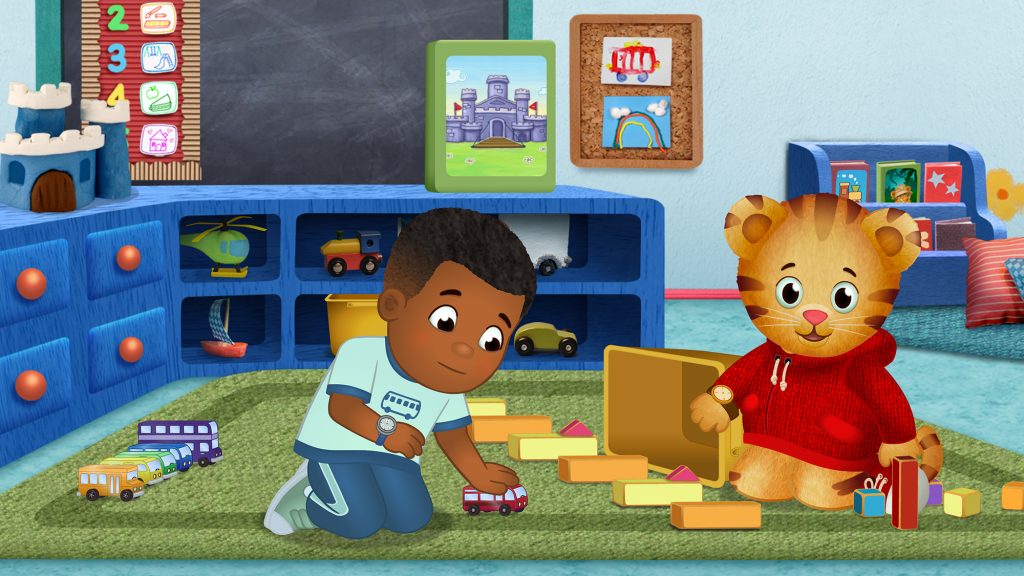Helping Children with Autism Through Daniel Tiger’s Neighborhood

The newest character on a popular children’s television show has been developed with input from a College of Education researcher.
Max is a new character that debuted on the PBS Show Daniel Tiger’s Neighborhood in April. Max has autism, and has trouble with loud sounds, flashing lights and certain fabrics, according to the show’s producers. Max also likes numbers, buses, and bugs, but it can take him a while to warm up to new friends, and he sometimes prefers to play on his own.

These character traits are modeled on some of the more common symptoms of children on the autism spectrum, says Welsey Dotson, an Associate Professor in the Department of Special Education in the College of Education and the Director of Applied Behavioral Intervention Services at the Thompson Center for Autism & Neurodevelopmental Disorders.
Dotson primarily works with adolescents and young adults with autism, but his path to now consulting with the Daniel Tiger show originated from a pilot study earlier in his career.
While working with a mass communications professor, Dotson was told that kids with autism really responded to the show. So, Dotson tested it.
“Before we started a formal study, we just set up a DVD playing Daniel Tiger’s Neighborhood in a room full of kids on the spectrum, and just watched what happened,” Dotson said. “There were kids who just played around, but the kids that were into the show were just planted there and enthralled,” he said. “It was not the expected response in a room full of young kids.”
Next Dotson conducted a formal study where he looked to see if behavior in the children who enjoyed the show could be changed. They used episodes that talked about social skills, like trying new food and interrupting, and for both children the study included, the behavior changed.
“It was just an initial study, a pilot, and there was so much we didn’t do – the kids were only watching the show,” said Dotson.
But this initial study was discovered and encouraged by Fred Rodgers Productions, which produces the show. They wanted Dotson to present and share the initial results at a PBS conference, because their ultimate goal for the Daniel Tiger show is to help teach children.
From there, the Fred Rodgers Production company asked Dotson to help them represent the growing number of children who fall on the autism spectrum. It is estimated that one in 54 children in the United States, including more than 12,000 in Missouri.
The debut of Max has allowed Dotson to be a featured speaker at a virtual event discussing the new character with RespectAbility, a nonprofit that advocates for people with disabilities. He also wrote an op-ed for Exceptional Parent magazine.
“We’ve worked on Max for quite a while, because they really want to get it right,” said Dotson. “We have gotten into fine grain items such as continuity in language and behavior, and they are always pitching ideas. It is a very amazing company to work with, and it’s been a very enjoyable experience.”